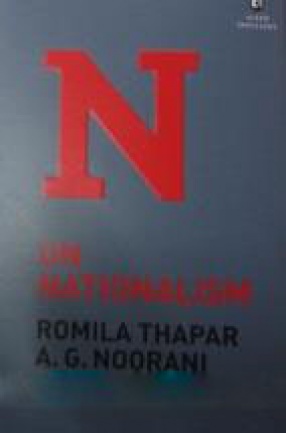
A G Noorani

Showing all 17 books

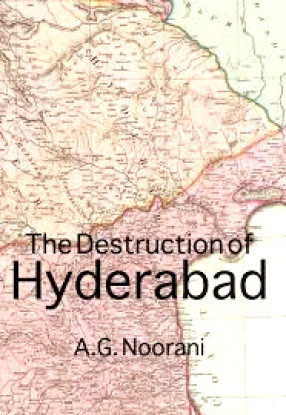
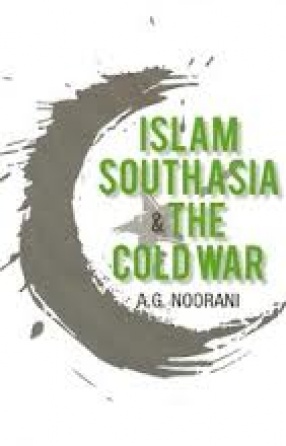
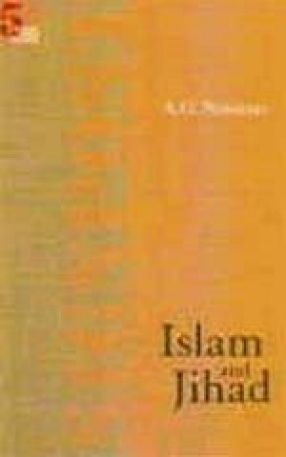
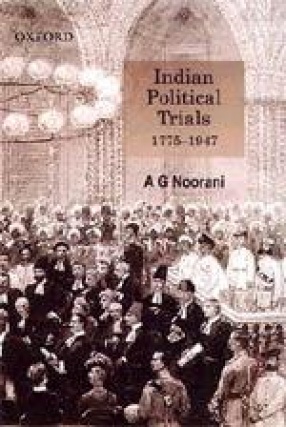

What is true nationalism? What is pseudo-nationalism? What is anti-national? What is patriotism? Is the shouting of nationalist slogans important to prove one’s patriotism? Why is Bharat Mata ki Jai so important to the right wing? Why does the law of sedition continue to exist on the statute book of an independent country? Who should the sedition law be used against? Why is cultural freedom important to a nation? What sort of India do we want? What sort of ...
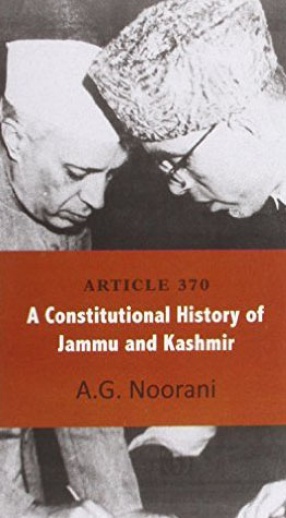
This book is a collection of documents on Article 370 of the Constitution of India, which contains provisions related to the state of Jammu & Kashmir. It provides new insights on the negotiations preceding its enactment, the significance of the Article, and the constitutional evolution of the State and its relationship with the Union of India from 1946 to 2010. A wide range of letters, memorandums, white papers, proclamations, and amendments throw light on ...
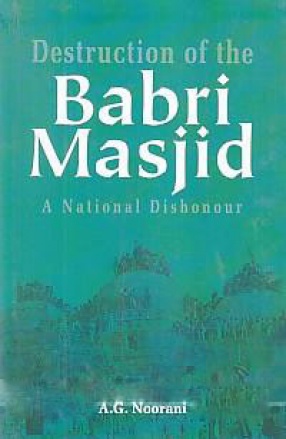

The story of the fall of Hyderabad State has been told a good many times. Told mostly by the ‘court historians’ of Indian nationalism, this study seeks to revise the official historical account of the ‘police action’ (1948) led by the Indian army against the forces and government of the Nizam of Hyderabad. The Destruction of Hyderabad provides a detailed record of the diplomatic exchanges between the Government of India and the Government ...
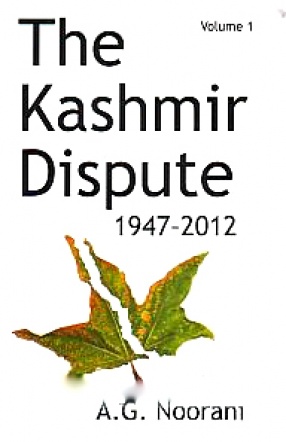
The Kashmir Dispute 1947–2012 is a book in two volumes which traces the complex history of the long-standing dispute, and the political discontent and dissent surrounding it – relating especially to the question of the accession of the state of Jammu & Kashmir to the Union of India.
Volume 1 comprises a critical and insightful introduction by the author based on recently published material, as well as a selection of both archival and contemporary ...

Islam, south Asia & the Cold War is a collection of articles written by A. G. Noorani over the last twenty-five years, and published in various dailies and journals to which he has been a regular contributor, including Frontline, The Statesman, The Indian Express, The illustrated Weekly of India and the Islamabad quarterly Criterion. The Book is divided in three thematic sections-Islam and Muslims, South Asian Themes and Ravages of the Cold War-and provides ...
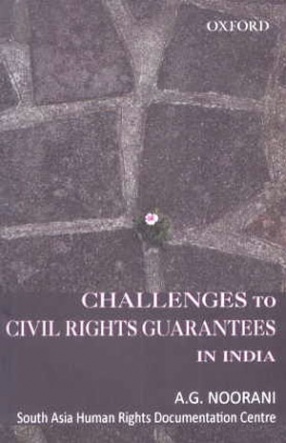
The civil rights of Indian citizens are guaranteed both in the Indian Constitution and through the State’s international commitments. Despite these guarantees, the civil rights framework encounters numerous challenges from the State problematic counter-terrorism laws, continuation of the death penalty, misuse of arrest and preventive detention powers, lack of implementation, and impunity.
Through nine incisive essays on both traditional and emerging issues, ...
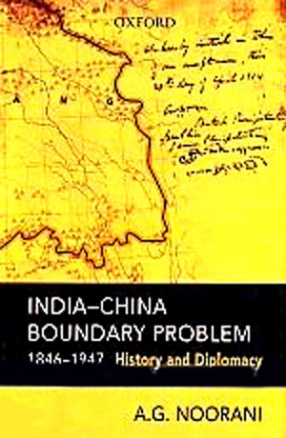
India-China Boundary Problem discusses the origins and development of India's boundary dispute with China. It examines several important aspects such as the areas of dispute, differing schools of thought, treaties, agreements, and conventions, role of the bureaucracy, and peace processes, together with an analysis of earlier attempts at drawing a boundary line. The author highlights the gaps in the understanding of the boundary problem and how it affected India's ...
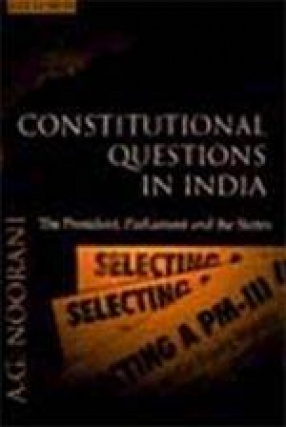
This volume, by a leading constitutional expert is a collection of some of his essays in leading Indian newspapers and periodicals. It covers the politically tumultuous years between 1989 and 1999 and scrutinizes almost every constitutional problem that arose in this period. This decade witnessed political instability at the centre, it saw the decline of one-party rule in New Delhi and its was the time when federalism and regional parties came into their own. ...

The terrorist attacks of September 11, 2001 and their aftermath have focused the world’s attention on Islamic fundamentalism. We are being told that what we are witnessing today is a ‘clash of civilizations’, between a secular, modern ‘West’ and a fundamentalist, backward-looking ‘Islam’. Why are a whole range of political, cultural, social, and even economic events often reduced in so Pavlovian a way to ‘Islam? What is it about "Islam’ ...
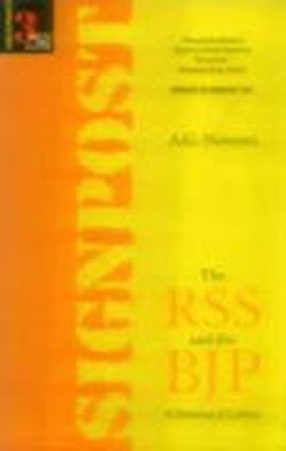
Signpost is a series that aims to reflect the views of the left and help create a common, progressive understanding of issues that matter. Signpost will address a wide variety of subjects. Each publication in the series shall focus on a single topic that is significant in debates of the day, in a manner that is serious, informative, analytically sound and politically interventionist. The series aims to bring advanced knowledge to the general readers and to ...
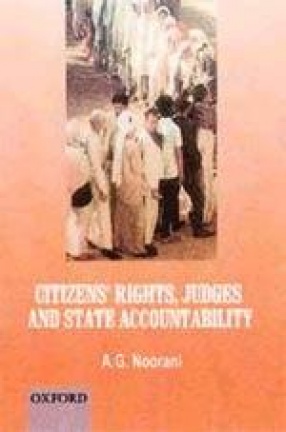
This volume of essays written in A.G. Noorani’s trademark lucid and accessible style deals with crises in various institutions including the judiciary, the civil services, and elections. It highlights the process of accountability in these institutions, the citizens’ right to know and correspondingly the states’ accountability to the people. It analyses the working of commissions of enquiry, the decline in the quality of the political process in recent ...
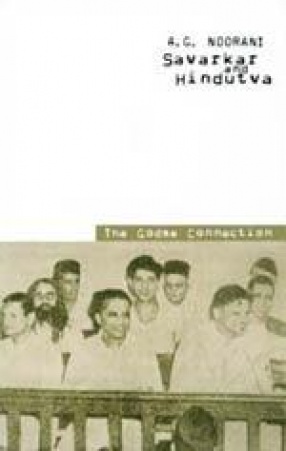
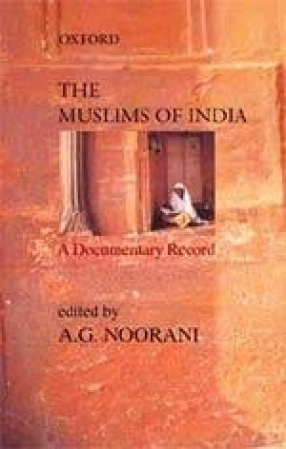
The situation confronting the Muslim community after Independence and the partition of India has been the subject of much research. In this volume, A.G. Noorani collects important documents recording reactions of Muslims in this period and in the subsequent fifty years. The emphasis is largely on the responses of the minority community to the problems they faced and on intra-community debates that ensued in the aftermath of partition. Besides recording key ...

The Babri Masjid Question, 1528-2003: ‘ A Matter of Natioial Honour’ is a compilation by A.G. Noorani, in two volumes, of primary source material on variouis aspects of the Ramjanmabhumi-Babri Masjid dispute. The documents, chronologically arranged under thematic chapter heads and covering historical, archaeological, legal and political ground, clearly reveal why and how an issue that had been settled in the nineteenth century was revived in the twentieth ...

Since the dawn of time, political trials stand out as landmarks in man's quest for truth, freedom, and justice. Judicial trials have been used for political ends by persons in power or those who seek power or accountability from wielders of power. This book examines 12 significant political trials in Indian history from the early colonial era to the birth of free India. Each chapter focuses on a trial, which while representative of an era also illustrates ...
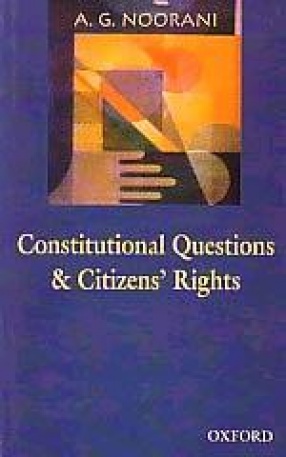
This omnibus brings together two highly acclaimed volumes of essays written by India's leading constitutional expert and political commentator, A.G. Noorani. The volume also includes nine new essays that examine key issue areas that have emerged in the debate on institutions and citizens' rights in recent times. The essays explore the Indian constitution and its basic structure. Parliament and the making of foreign policy, the issue of lobbying and the need for ...
